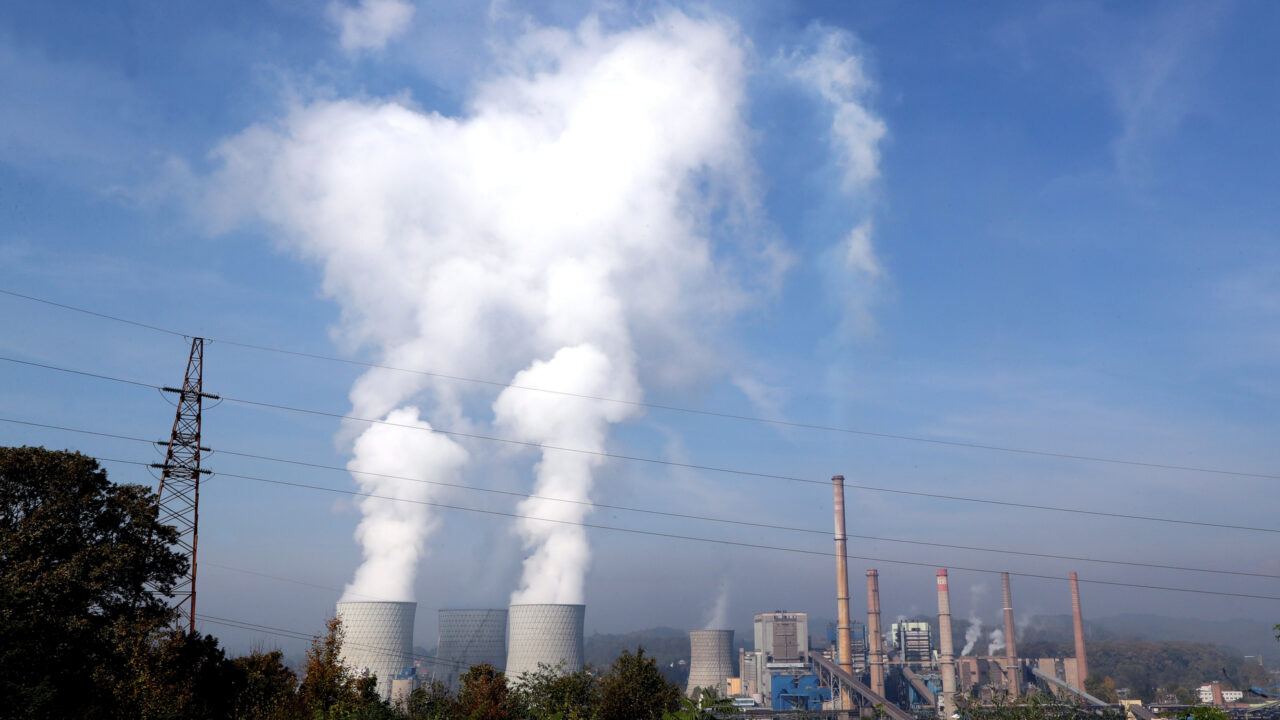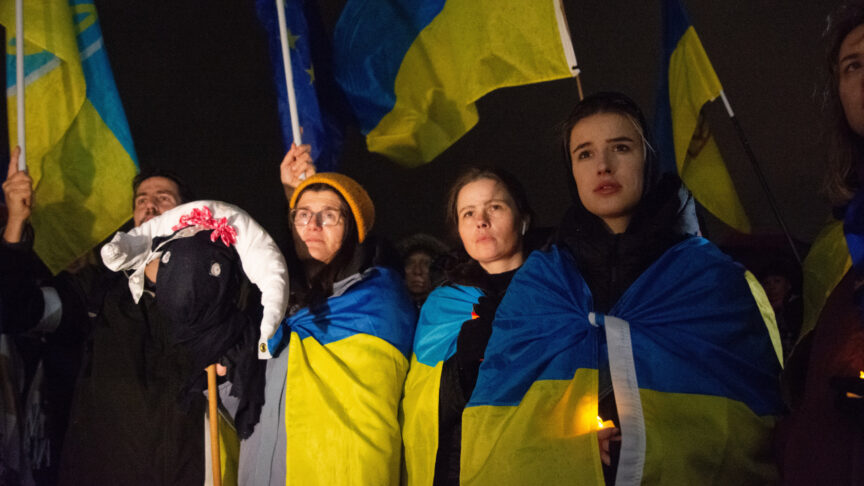Green enlargement: How the EU’s growth plan for the Western Balkans can promote climate action
The European Commission’s new support package for the Western Balkans could incentivise the reforms necessary both for EU membership and the green transition. But promoting climate action as a priority in the region will be far from straightforward
Enlargement is back in fashion. Russia’s all-out invasion of Ukraine and the geopolitical turmoil that followed have driven the European Union to make membership a credible goal for Ukraine, Moldova, and Georgia – but also for longstanding prospective member states in the Western Balkans.
To that end, the European Commission has published a “new growth plan” for the Western Balkans’ aspiring EU members: Albania, Bosnia and Herzegovina, North Macedonia, Kosovo, Montenegro, and Serbia. The aim is to accelerate their socio-economic convergence with the EU, extend some of the benefits of EU membership to the region, and ultimately speed up the accession process. To incentivise reform, the plan includes €6 billion in conditional loans and grants through a new fund, of which at least 37 per cent must go towards climate action.
This represents an opportunity for Western Balkans states to take serious steps towards a model of sustainable growth, as envisaged in the EU’s 2020 investment plan, the “green agenda” for the Western Balkans. That initiative aimed to promote the region’s green transition through, among other things, the decarbonisation and integration of its energy markets. Progress, however, has been slow due to limited financing for such projects – and a lack of capacity and political will in the Western Balkans space. To make the most of the climate funding foreseen in the new growth plan, the EU and Western Balkans states need to anticipate and overcome challenges such as these. That way, the plan can help expedite both EU enlargement and a truly Europe-wide green transition.
Green demands
The EU’s new plan sets ambitious targets for Western Balkans states across an array of areas. Its implementation will involve alignment of the region’s economies with the EU single market, including the free movement of goods and services, as well as progress towards the climate goals set out in the green agenda. The plan also demands greater regional cooperation, particularly in energy and electricity markets and transport (for instance, building rail connections between the region’s major cities). On top of that, each Western Balkans state will have to continue with the fundamental democratic reforms necessary for EU membership.
Western Balkans states may lack the capacity to formulate innovative projects to tackle all the reforms necessary for EU accession while also taking steps towards decarbonisation
But Western Balkans states may lack the capacity to formulate innovative projects to tackle all the reforms necessary for EU accession while also planning for decarbonisation. Albania relies on hydropower for most of its energy, but coal remains king in the other Western Balkans states – despite their great potential for a transition to renewables. Governments in the region will need to learn how to tackle green policies while being pulled in many different directions by the other demands of the growth plan. Moreover, it seems that Western Balkans governments will have to divide the 37 per cent of funding among the priority areas of renewables and energy projects, but also to address other important points of the green agenda: cross-border pollution, environmental risks, waste management, air and water quality, and the circular economy.
These competing demands (and a lack of capacity to manage them) risk pushing climate objectives even further down the list of priorities for Western Balkans states. The EU should anticipate this by making clear that delays in the implementation of the green agenda could delay overall progress in EU integration.
Green conditionality
Access to the new funding will be accompanied by increased conditionality. Financing for climate projects will therefore depend on Western Balkans governments making progress on fundamental reforms related to rule of law and democratic institutions (as well as wider socio-economic alignment with the EU). They will also have to meet fixed deadlines to fulfil the conditions for each payment. Failure to comply could result in the retrieval of funds destined for a certain country and redistribution to another.
With strong conditionality, the EU provides an incentive for reform in the Western Balkans. But fundamental reforms follow complex trajectories in each candidate state. They are also characterised by lengthy processes of implementation. For instance, rule of law related reforms take years to accomplish, even in the case of Albania where the justice system has undergone a thorough process of “vetting”. Moreover, progress has stalled on the normalisation of relations between Kosovo and Serbia, which has long been a precondition for their EU accession.
Strong conditionality that results in the EU withholding funds could therefore translate into slower progress towards the green transition in some Western Balkans states. This demonstrates how geopolitics ties in with the implementation of the green agenda. As the geopolitical situation is fluid, the EU could look at expanding ways to fund the green transition in the region, without that depending entirely on its conditions for membership.
A common green market
Another pillar of the growth plan is to strengthen the Western Balkans’ common regional market, especially its electricity, transport, and energy markets. This presents a challenge for a group of countries among which efforts at cooperation can be wracked by mistrust. The embryonic stage of action to decarbonise the region’s markets could act as a multiplier for those difficulties.
The EU needs to ensure that its funding arrives alongside incorporation into EU mechanisms designed to help also build capacity and expertise. The European Commission should provide long-term support for the Western Balkans in this regard, thereby enhancing regional cooperation with much-needed EU participation in tackling the objectives of the green agenda.
The new growth plan has the potential to be a successful example of targeted funding for the green transition. To ensure that the funding is successfully absorbed, Western Balkans states need to stay focused on the implementation of the green agenda as they work towards the requirements set out in the new plan. The EU, in turn, needs to encourage more investment in energy security, transportation networks, and renewables. This will be fundamental to reducing dependency on third actors (such as Russia) and improving regional cooperation.
Lea Fanku is a visiting fellow with the Wider Europe programme at the European Council on Foreign Relations
The European Council on Foreign Relations does not take collective positions. ECFR publications only represent the views of their individual authors.



